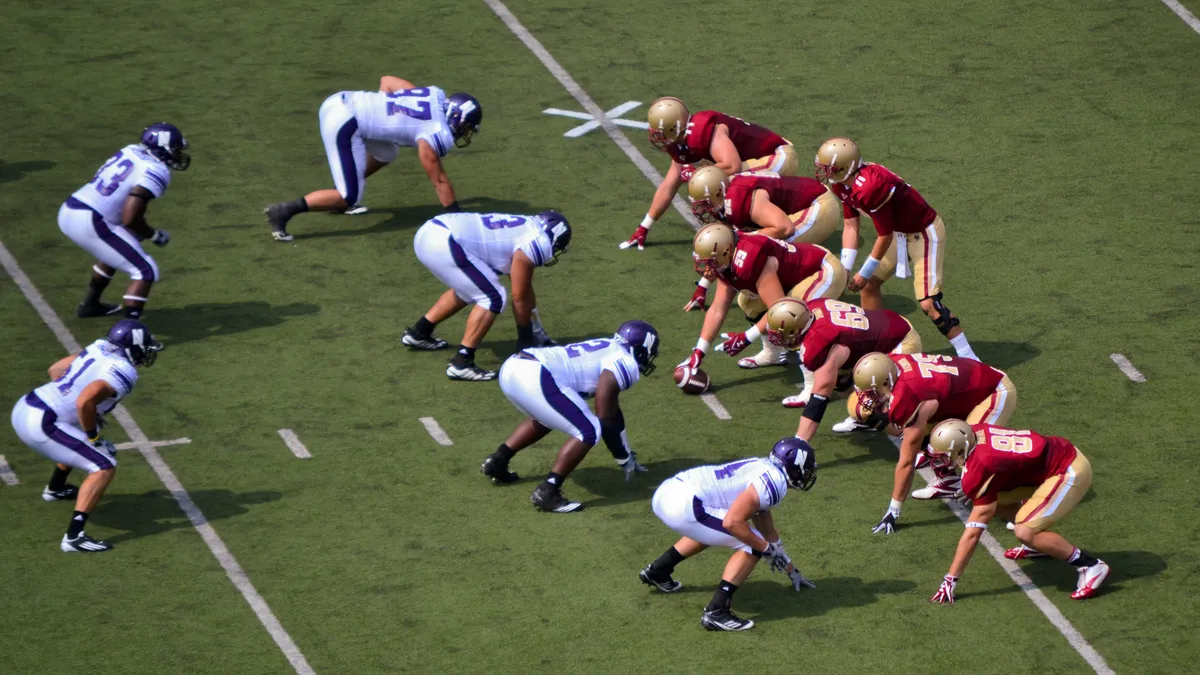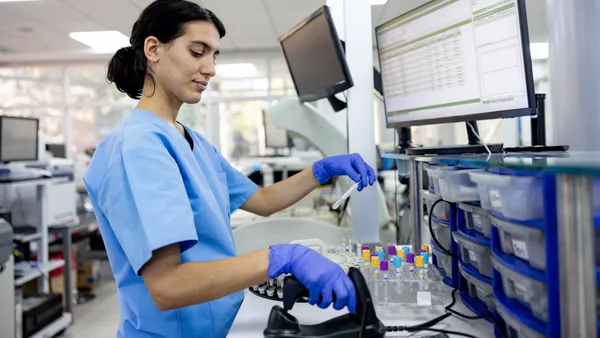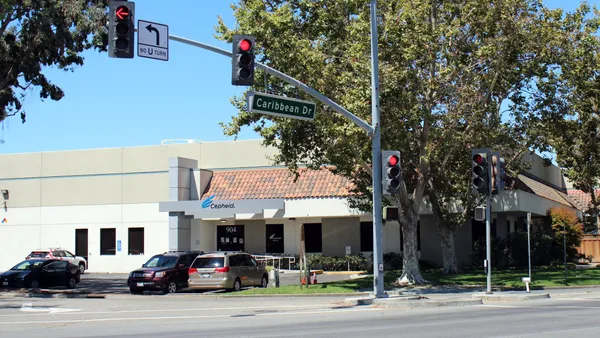Dive Brief:
- Analyzing blood samples within 24 hours of a suspected mild traumatic brain injury (mTBI) using a point-of-care platform might help identify injuries warranting MRI scans and other follow up, according to findings from an 18-center study funded by the National Institute of Neurological Disorders and Stroke and U.S. Department of Defense. Results were published Friday in the journal Lancet Neurology.
- A sub-analysis of the prospective, observational TRACK-TBI study examined 450 patients, most of whom had experienced a traffic accident or incidental fall, whose CT scans appeared normal within 24 hours of injury. Researchers evaluated blood samples for a biomarker known as GFAP (glial fibrillary acidic protein) using an in-development Abbott test run on the company's point-of-care analyzer. Of the patients with the highest concentration of the biomarker, nearly two-thirds were confirmed to have a TBI via an MRI scan taken seven to 18 days later.
- The technology could "help fill a gap in emergency rooms" by identifying injuries that might fly under the radar of a CT scan, Abbott said in a statement. The company said levels of GFAP, which is released into the bloodstream following injury, also showed promise in predicting type of damage and extent of injury, and didn't appear significantly elevated in healthy control groups or in people with only orthopaedic injuries.
Dive Insight:
Abbott is looking for its in-development concussion assessment to become part of the approximately 4.8 million U.S. emergency room TBI evaluations that happen each year. The company said it has more than 120 scientists and engineers working on the test.
After assessing speech and movement of the eyes and other parts of the body using the Glasgow Coma Scale, a provider might order a CT scan as first-line imaging to check for brain tissue damage or intracranial lesions. But that doesn't flag all cases of injury; in the study, about 27% patients with normal CT scans later showed signs of TBI under more sensitive MRI imaging.
An effective blood test could help identify which patients with normal CT scans are good candidates for further screening. In Abbott's case, the samples would be run through its updated i-STAT hand held blood analyzer, which the company said could deliver results within 15 minutes.
"This research shows that blood tests have the potential to help physicians triage patients suspected of brain injury quickly and accurately," Geoffrey Manley, principal investigator and University of California, San Francisco, said in a statement provided by Abbott.
If brought to market, the technology would build on a De Novo clearance FDA granted last February to a blood test for mild TBI from Banyan Biomarkers, a company founded by scientists from the University of Florida McKnight Brain Institute. The agency heralded the clearance as a step toward reducing unnecessary patient imaging.
The Brain Trauma Indicator, reviewed within six months through the FDA's Breakthrough Devices Program, evaluates GFAP levels as well as concentration of a protein known as UCH-L1. Those measurements can help predict which patients may have intracranial lesions show up on a CT scan, FDA said.
Banyan struck a non-exclusive deal in April giving Abbott license to use both UCH-L1 and GFAP on its core laboratory instruments. Financial terms of the agreement weren't disclosed. Following the TRACK-TBI results, Abbott said GFAP levels appeared more sensitive for detecting brain injury in patients with a negative CT scan than UCH-L1 as well as a handful of other blood biomarkers.
New methods for detecting and diagnosing TBI have seen a wave a of interest from FDA recently, partly through the Breakthrough Devices Program, which has recognized other biomarker measurement systems from companies like BioDirection and BrainBox Solutions. Oculogica received a De Novo clearance in late 2018 for eye-tracking technology that measures cranial nerve function to determine presence and severity of a potential TBI.
Abbott in April announced the next phase of its partnership with the Department of Defense on TRACK-TBI — a clinical trial of its GFAP and UCH-L1-based test.











